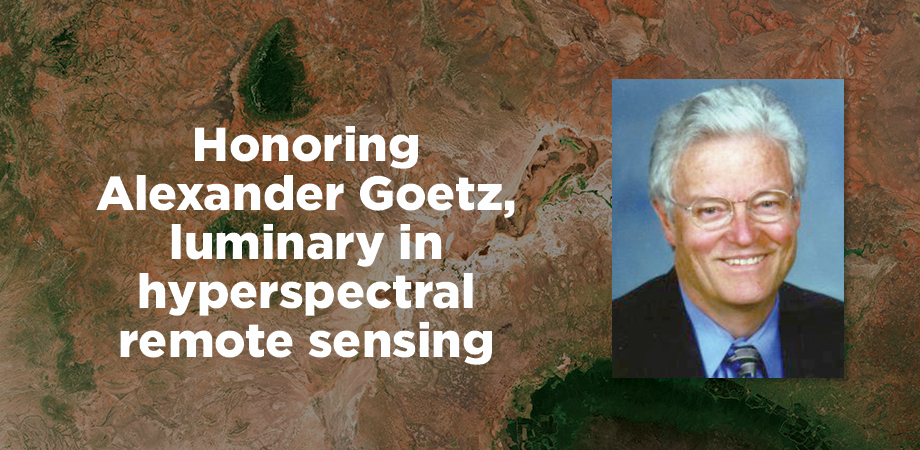SPIE Luminary Alexander Goetz

The SPIE Luminary Series
In 2021, SPIE celebrates the work of those who have "lit the way" for research in optics and photonics. Each of these luminaries has made a significant impact on the development of a field that is core to SPIE, including biomedical optics, electronic imaging, optical systems, lens design, neurophotonics, light-based energy research, remote sensing, medical imaging, and nanophotonics. A different luminary will be featured each month.
Many of these luminaries have published with SPIE for decades, while others are newer to our community. To highlight their contributions to the literature, SPIE will make all of their SPIE-published research open access for one month in the SPIE Digital Library, including SPIE Proceedings and journal papers.
December Luminary: Alexander Goetz
Hyperspectral imaging pioneer Alexander Goetz began working with and developing remote sensing measurement techniques and instrumentation during his PhD work at the California Institute of Technology (CIT), where he received his doctorate in 1967. He was still developing new technologies for the field more than 40 years later. Goetz' research interests have included application of remote sensing to challenges across both industry and science, from mineral and petroleum exploration to ecology and Earth mapping.
After postdoctoral work at CIT and Bellcomm, part of AT&T Bell Labs, Goetz joined the Jet Propulsion Laboratory (JPL) in 1970. One of the outcomes of his time there was the JPL imaging spectrometer program, spearheaded by Goetz and Greg Vane, which produced an early version of an Airborne Imaging Spectrometer (AIS). Goetz left JPL in 1985 for the University of Colorado, Boulder, where he became a professor of geological sciences and founding director of the Center for the Study of Earth from Space, part of the university's Cooperative Institute for Research in Environmental Sciences. In 1990, Goetz cofounded Analytical Spectral Devices (ASD) with Brian Curtiss in order to develop and commercially produce a field spectrometer — now known as the FieldSpec® product range — while continuing to pioneer the science of hyperspectral imaging and manufacturing near-infrared spectroscopy instrumentation for measurement and research for sensing, mining, and other industrial markets. Goetz was ASD's chief scientist until 2013, when the company was purchased by Spectris. (In 2006, he retired from his university roles).
"To say that Alexander Goetz is a pioneer in hyperspectral remote sensing is almost an understatement," says Journal of Remote Applied Sensing (JARS) Editor-in-Chief Ni-bin Chang. "He has not only led in the field as a researcher, thought leader, and teacher, he successfully led commercial efforts to develop and implement critical instruments that have advanced the field."
For the month of December, all of Alexander Goetz' papers in the SPIE Digital Library will be open access to honor his contributions to hyperspectral remote sensing.



